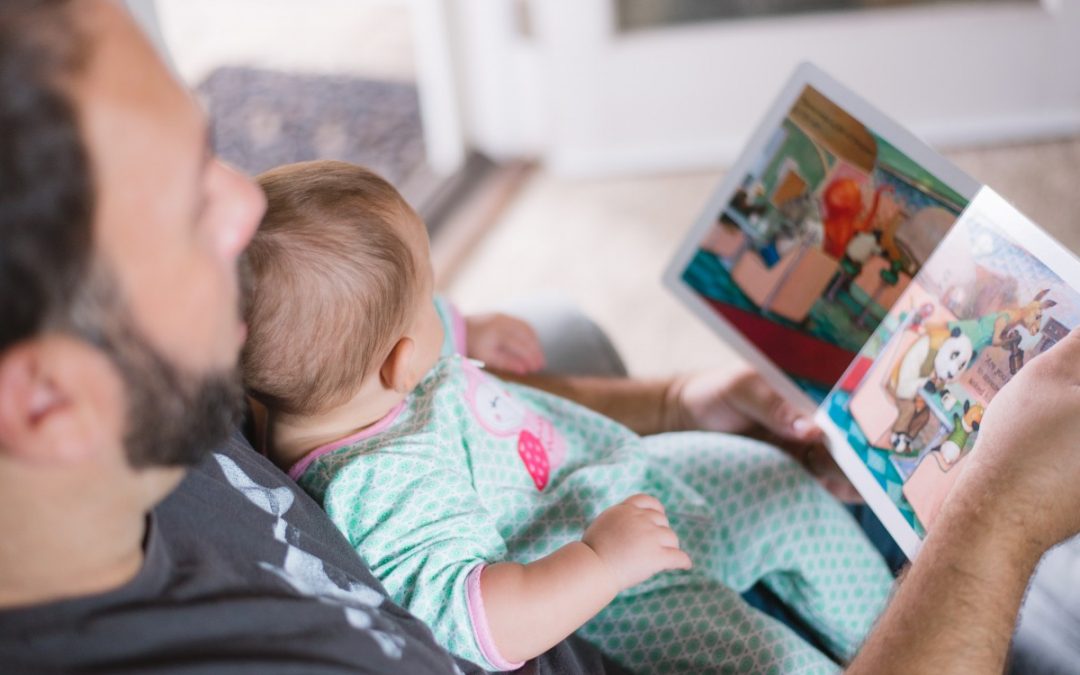Reading out loud
“Wilfred owned a moose. He hadn’t always owned a moose. The moose came to him a while ago and he knew, just KNEW, that it was meant to be his. He thought he would call him Marcel.“
My superpower is that I can recite Oliver Jeffers’ This Moose Belongs To Me – no book required. Heck, no audience required! It may seem pretty ho-hum but, as a teacher of young children and a dad, I actually get to use my superpower quite a bit.
I always loved reading but was never very good at reading out loud. It felt too much like performing. The fear of stumbling or stuttering was real. Even at university I had chosen a course called ‘Telling Stories’ and was horrified to find that it required writing a story and then reading it to a large room of adults and professors. Anxiety levels: through the roof.
But after having kids of my own, I discovered the pure joy of telling stories and watching the deep engagement of my daughter while I spun the tale. You see, she really, really liked This Moose Belongs To Me. And when you read a story day after day, night after night, it kind of forces you to explore some new direction to keep it fresh. A little emphasis over here, a smidge of a whisper there and suddenly, magically, the narrative can take on new meaning. Now I can’t get enough of it! Which is great because my daughter always wants me reading stories to her.
At O’Grady Drama, we are all about the development of confidence, of acting skills, of children (and even dads!) discovering their voice and learning to thrill and inspire with it.
Here are our hot tips on developing your story telling superpower.
The Enthusiasm
Nothing invites the audience into a story like the enthusiasm of the reader. If you are genuinely eager they will be too. So choose a story that appeals to you and be ready to get lost in the adventure yourself. I love when authors play with words and sounds like musical instruments. So I pick stories like The Silver Sea by Alison Lester, or Oh The Places You Can Go by Dr Seuss where the words flow rhythmically and joyfully.
It can be hard to be enthusiastic if your not confident in reading out loud (but don’t worry you will be). It is often recommended that you practice reading the book on your own. But this just takes away a potential opportunity for an audience to be spellbound. No one forgives stutters and stumbles like an eager audience. Remember – every story reading is practice for the next story reading.
The Voice
Throw out the idea that children’s books need to be sing- song sounding. Get rid of it. To really draw in an audience you need to use a dynamic voice. Our voices can be loud or soft, change frequencies, or be slow or fast. Match your voice to the action of the narrative. Whispers can help build tension, shouts can release them, reading slowly and quietly can give emphasis. Try to work out how the author intended the story to be read. And once you think you have worked it out and mastered it then act the DJ and mix it up a bit (or a lot!). There is no one way that a story should sound. Learn to love the sounds of language and just play with them the way a child might.
The Body
Whether you are sitting with an audience or laying arm-wrapped with your child at bedtime you can use your body language to engage the listener. Practice looking up from the words and into the eyes of your audience. Nothing wrestles the attention like eye contact. Gesticulate wildly and use your face to convey expressions – their eyes will be glued to your face and filled with wonder (even when they already know the story!).
The Audience
Our final tip is simple yet one of the most neglected aspects of reading aloud in an engaging way. Read your audience as well as the darn book. An audience, especially children, will tell you quickly if you have caught their interest or not. Look for cues like fidgeting and restlessness – you’ve lost them. Inject some electricity into your expression and lurch forward in your chair and watch them ratchet back into the narrative. Another simple use of your audience is to get them participating. Use opportunities for them to call out repeating lines.
Finding acting classes and enrolling in kids drama programs are fantastic ways of developing self- confidence and speaking skills. But anyone at any time can become a story-telling hero by following O’Grady’s hot tips for reading aloud – it really is the oldest trick in the book.
